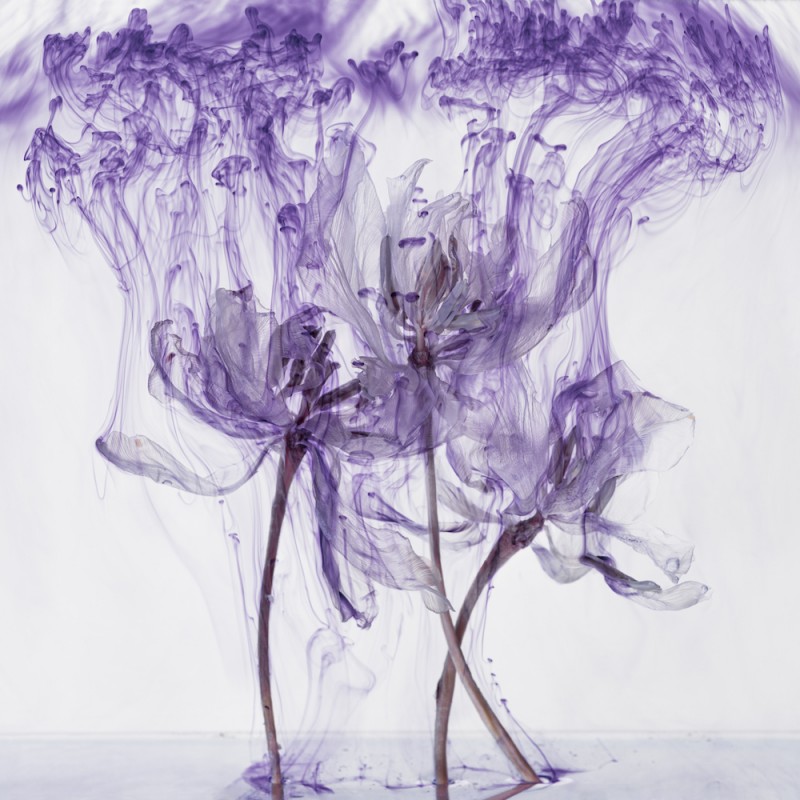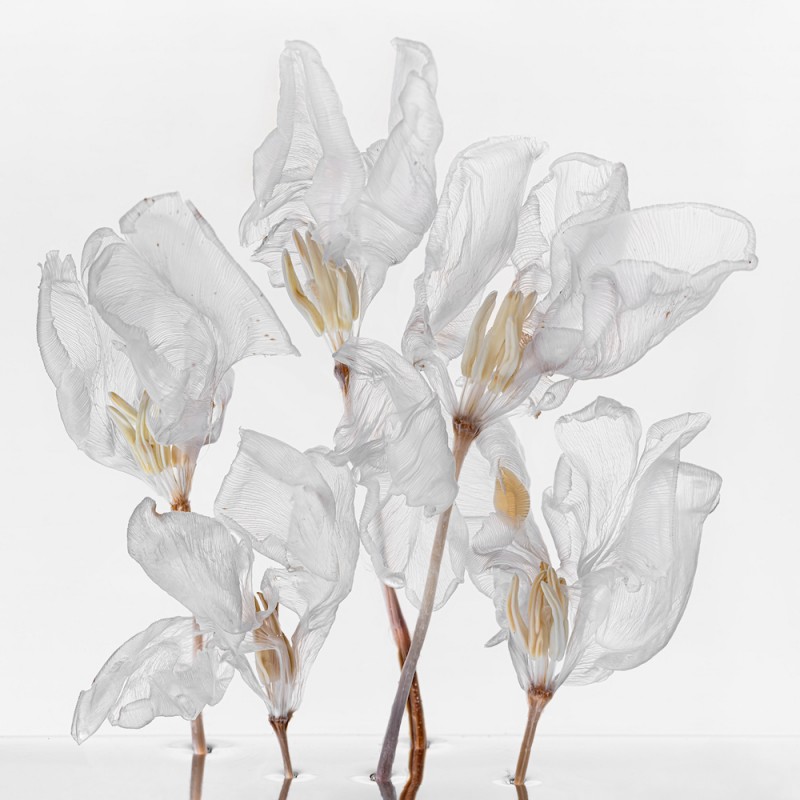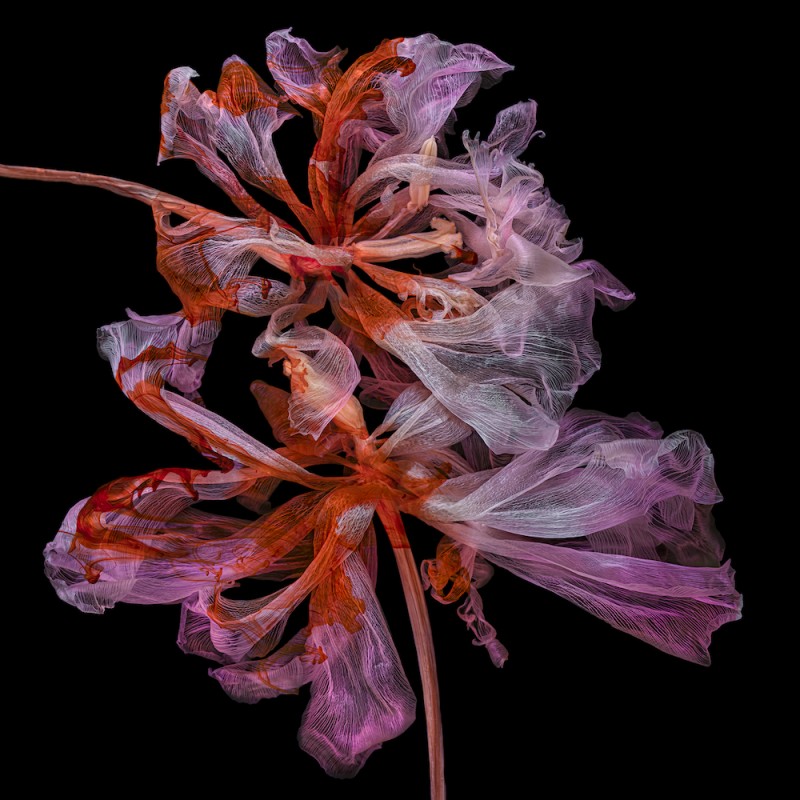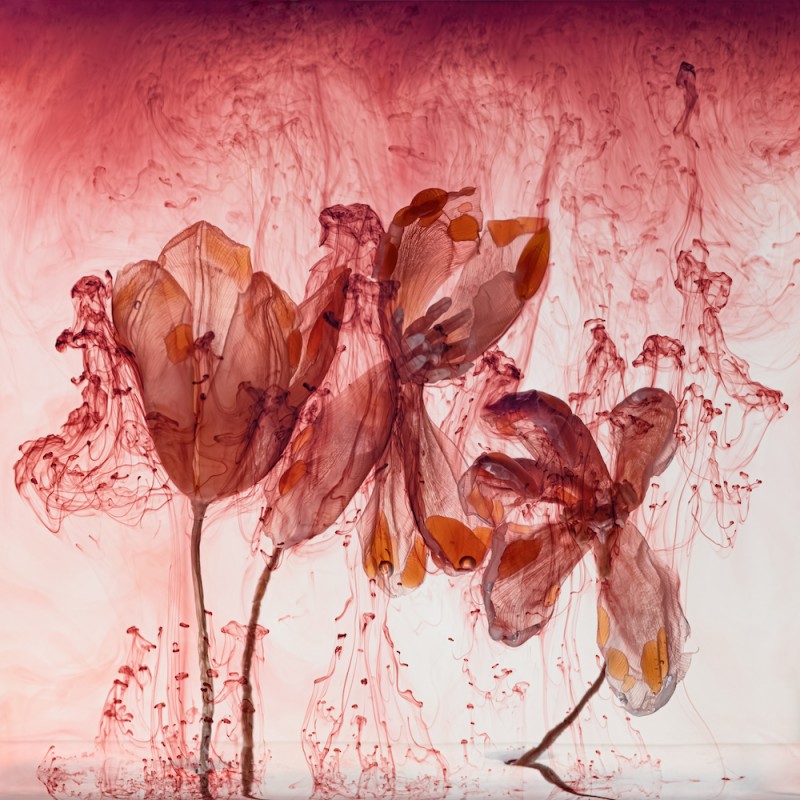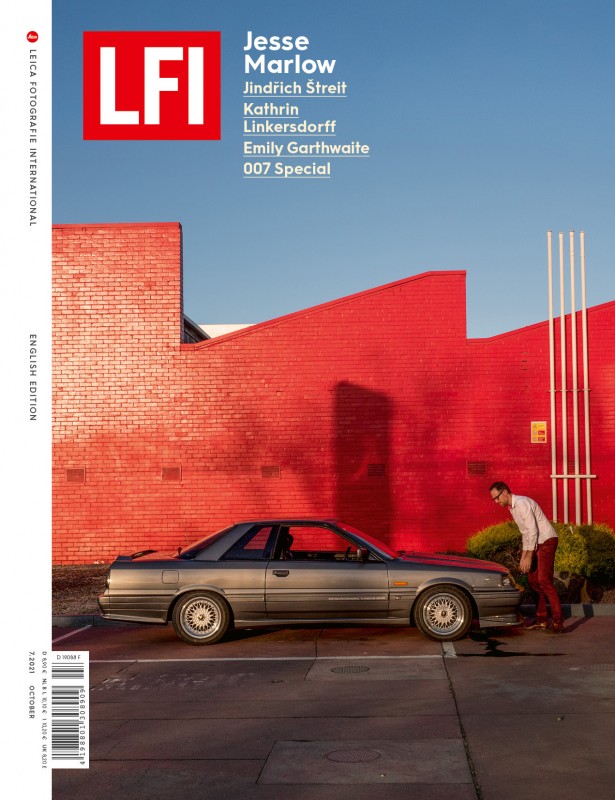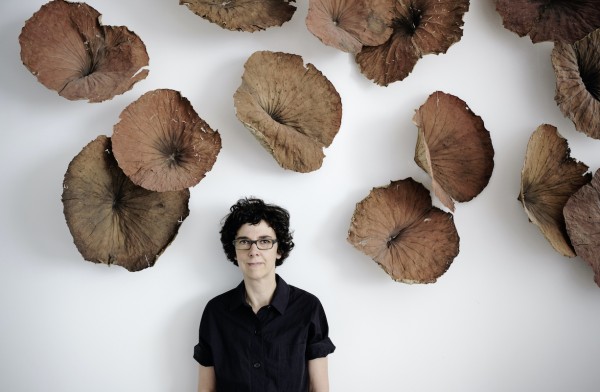Fairies
Fairies
Kathrin Linkersdorff
September 21, 2021
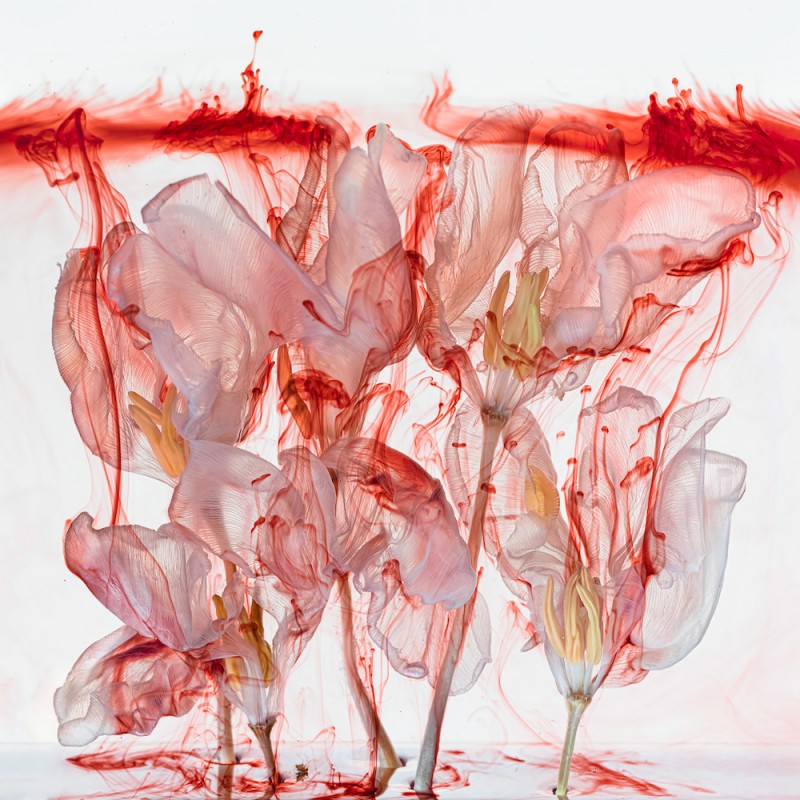
LFI: What lies behind the highly artistic level of your images?
Kathrin Linkersdorff: I create my own micro-cosmos with micro photography. As far as I'm concerned, it's not actually about the tulips, but about the structures that lie beneath the surface and the essence of an organism. My images are the result of very elaborate processes: from the preparation to the quality of the blossoms and the vegetable dyes, which I manufacture myself, to the arrangement of the photographic settings, and the final print.
Can you explain something about your techniques?
To protect the blossoms from UV light, I hang them in the darkest situation possible, or store them in boxes. Then I observe, turn, and dust them during the drying process, which can take from days to a number of weeks. Each blossom is different and unique; each has its own character, even if they belong to the same species. The flowers are precious and the choice of appropriate blossoms is very limited. Furthermore, nearly 80 percent of the flowers are destroyed by the surface tension of the liquid, when they are immersed. There is always only one perfect moment in which to take the picture. Once the motif is complete, a similar complex process is needed for the printing. The viewer can recognise the great effort involved.
What needs to be considered, while photographing?
Air bubbles absolutely need to be avoided, as they influence the camera's focus, producing blurriness in certain places that I don't want. The depth of field is very low, anyway. In the last two Fairies series, I added vegetable dyes I extracted from the flowers, and sometimes these pigments create shapes that are barely distinguishable from the petals. That's a process that I can't control. I work with daylight, which I guide in specific ways, using reflectors. For some motifs, I also use a black background, which gives the motifs a very different look.
To what degree does the Leica S3 support your work?
The Leica S3 is my preferred tool, because of the incredible amount of detail it provides; and the sharpness, down to the tiniest cell. It's like you can almost dive into my pictures. Many people don't stand at a distance from the 153x153cm prints; they prefer to get very close, so as to discover the cosmos within the pictures, millimetre by millimetre.
LFI 7.2021+-
You can find more about her Fairies I-V series in LFI 07/2021. More
Kathrin Linkersdorff+-
The photo artist was born in East Berlin in 1966. After studying architecture at the Technical University of Cottbus, Linkersdorff worked in her profession, from 1990 to 2012, in Tokyo, Berlin and Düsseldorf, before dedicating herself fully to photography. Her photographic work has been presented nationally and abroad, including in large-format outdoor exhibitions in Berlin and Erfurt. Her first book, titled Fairies, was published recently by Hartmann Books. More

